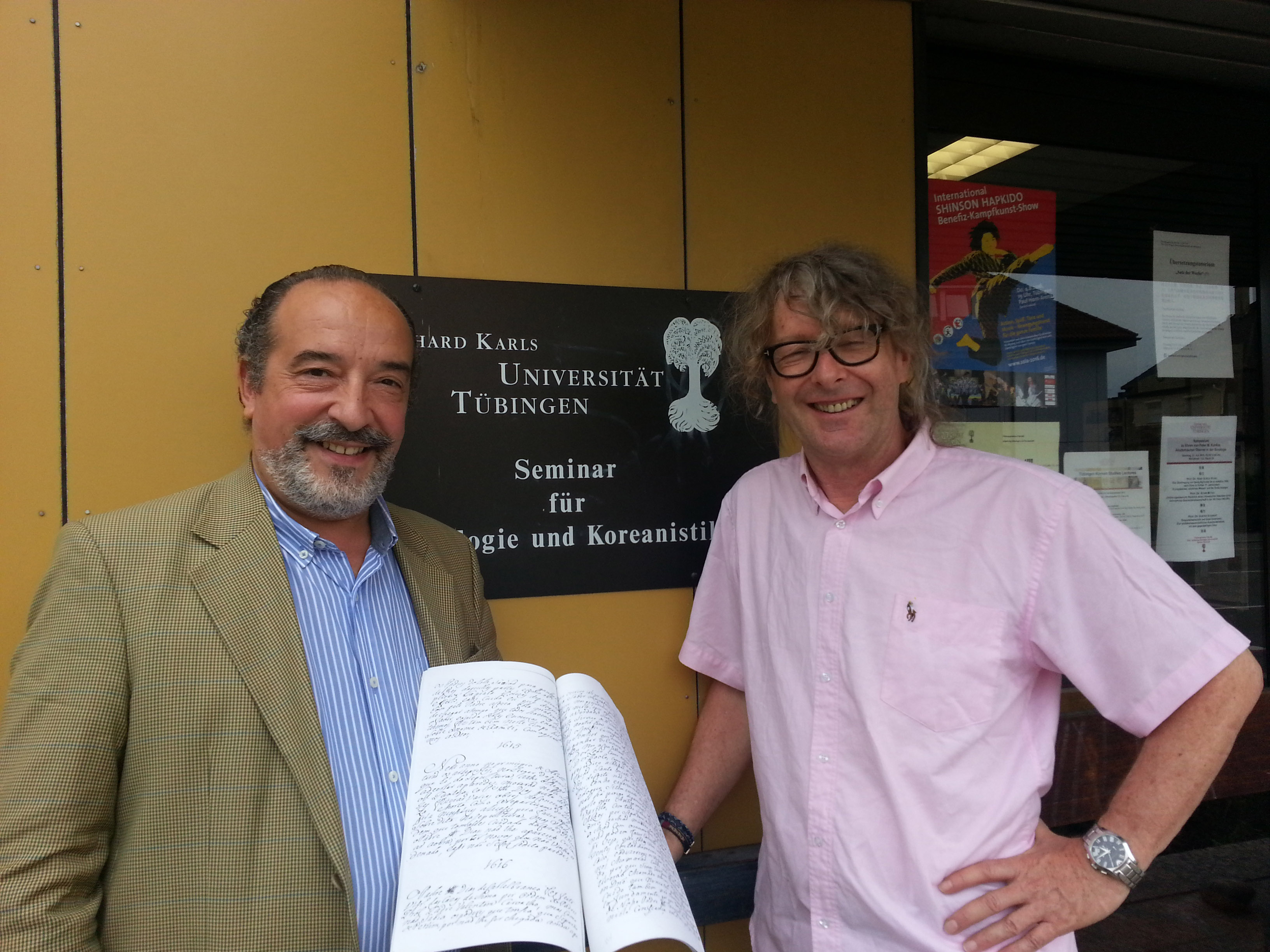Prof António Vasconcelos de Saldanha, from the Department of History, Faculty of Social Sciences (FSS), University of Macau (UM), recently presented the rediscovered personal journal of the Jesuit priest and scientist Sabatino de Ursis (1575-1620), one of the successors of Fr Matteo Ricci in the Ming court of China, at a conference held in the Department of Sinology at the University of Tübingen in Germany. Prof Saldanha’s rediscovery brings a new understanding of the history of how Western science was introduced into China during the Ming dynasty.
Apart from the important and far unknown references to the scientific production by famous Portuguese Jesuits, such as Frs João Rodrigues ‘Tçuzu’ on geography and Manuel Dias’s《天問略》 (An Explanation of the Celestial Sphere, 1615) that introduced Galileo’s work into China, the newly rediscovered manuscript shows how Sabatino de Ursis systematically discussed practical problems and a number of selected theoretical questions related to hydrology, water technology, and water management in his Hydromethods of the Great West, a treatise published in Beijing in 1612. The Portuguese manuscript brings a new understanding of this work whose publication and spread was sponsored by important scholar-officials in Ming dynasty and which was graced with a preface by Xu Guangqi before being presented to the Wanli Emperor.
This Portuguese manuscript used to belong to the Jesuit archives in Macao. Since the mid-18th century, it has sunk into oblivion in the famous Jesuit collections in the royal library of Ajuda in Lisbon, where it was rediscovered and identified by Prof Saldanha.
Prof Saldanha is a renowned specialist on the history of Macao and the history of the Society of Jesus in China. His research is being developed in association with another important and innovative research project ‘Translating Western Science, Technology and Medicine to Late Ming China: The Kunyu gezhi 《坤輿格致》(Investigations of the Earth’s Interior; 1640) and Taixi shuifa 《泰西水法》(Hydromethods of the Great West; 1612)’, directed by the renowned European sinologist Prof Hans Ulrich Vogel from the Section of Sinology at the Department of Chinese and Korean Studies, Tübingen University, Germany.
Further results of the analysis of this hitherto unknown but important historical source will be presented at an international conference to be held in Beijing in November this year.
Source: Faculty of Social Sciences
Media Contact Information:
Communications Office, University of Macau
Albee Lei Tel:(853) 88228004
Kelvin U Tel:(853) 88224322
Email:prs.media@um.edu.mo
UM Website:www.umac.mo

